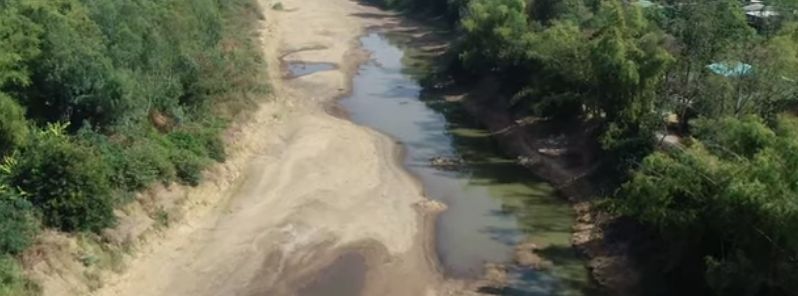Worst drought in 40 years turns tap water saline, impacts health and agriculture, Thailand

Thailand is experiencing its worst drought in 40 years, causing tap water to turn saline as the water level at Chao Phraya River– a major water source– dropped too low to keep seawater out. According to authorities, the dry spell is also affecting water for drinking and farming, causing problems among citizens.
As tap water turned salty in parts of Bangkok, citizens feared that it might have adverse health effects. The Metropolitan Waterworks Authority responded to public panic, saying that a small amount of salt in drinking water will not pose harm.
"Salty tap water may add more sodium to the body, but it's a small amount," MWA official Phanphimon Wipulakon said. However, health experts still urged people, especially those with kidney disorders, to be more cautious.
According to the World Health Organization (WHO), the recommended salt intake for adults is less than 5 g (0.17 oz), or just under a teaspoon per day.
The Thai Meteorological Department (TMD) expected this to be the worst drought in four decades, and the saline intrusion is just one indication of dry conditions pointing to it.
"Drought has come earlier this year, and it’s affecting both waters for agriculture as well as for drinking," said Surapong Sarapa, TMD head of forecasting. "More parts of the country than in the past could be impacted," he warned.
Suppakorn Chinvanno, a climate expert at Bangkok's Chulalongkorn University, attested that the drought conditions worsened saltwater intrusion which can have severe impacts on health and agriculture.
"It is becoming a more serious issue, with the intrusion coming farther inland this year and earlier in the season," he said. "It will have a serious impact on agriculture in the region, as rice is a very water-intensive crop."
The dry spell jeopardizes crop production and rural demand in a country where there are around 11 million people in the agricultural industry.
"Drought could stop people from spending even if they aren’t directly affected," said Somprawin Manprasert, Chief Economist at Bank of Ayudha Pcl. This, in turn, would trigger a downward economic spiral.
On Tuesday, January 7, Prime Minister Prayuth Chan-ocha urged the public to take shorter showers in order to save water. The government also set up a water command center to coordinate its response. Around 6 billion baht or 198 million dollars have been allocated to prevent water shortages.
Featured image credit: Drone footage, Viral Press/YouTube

Commenting rules and guidelines
We value the thoughts and opinions of our readers and welcome healthy discussions on our website. In order to maintain a respectful and positive community, we ask that all commenters follow these rules.